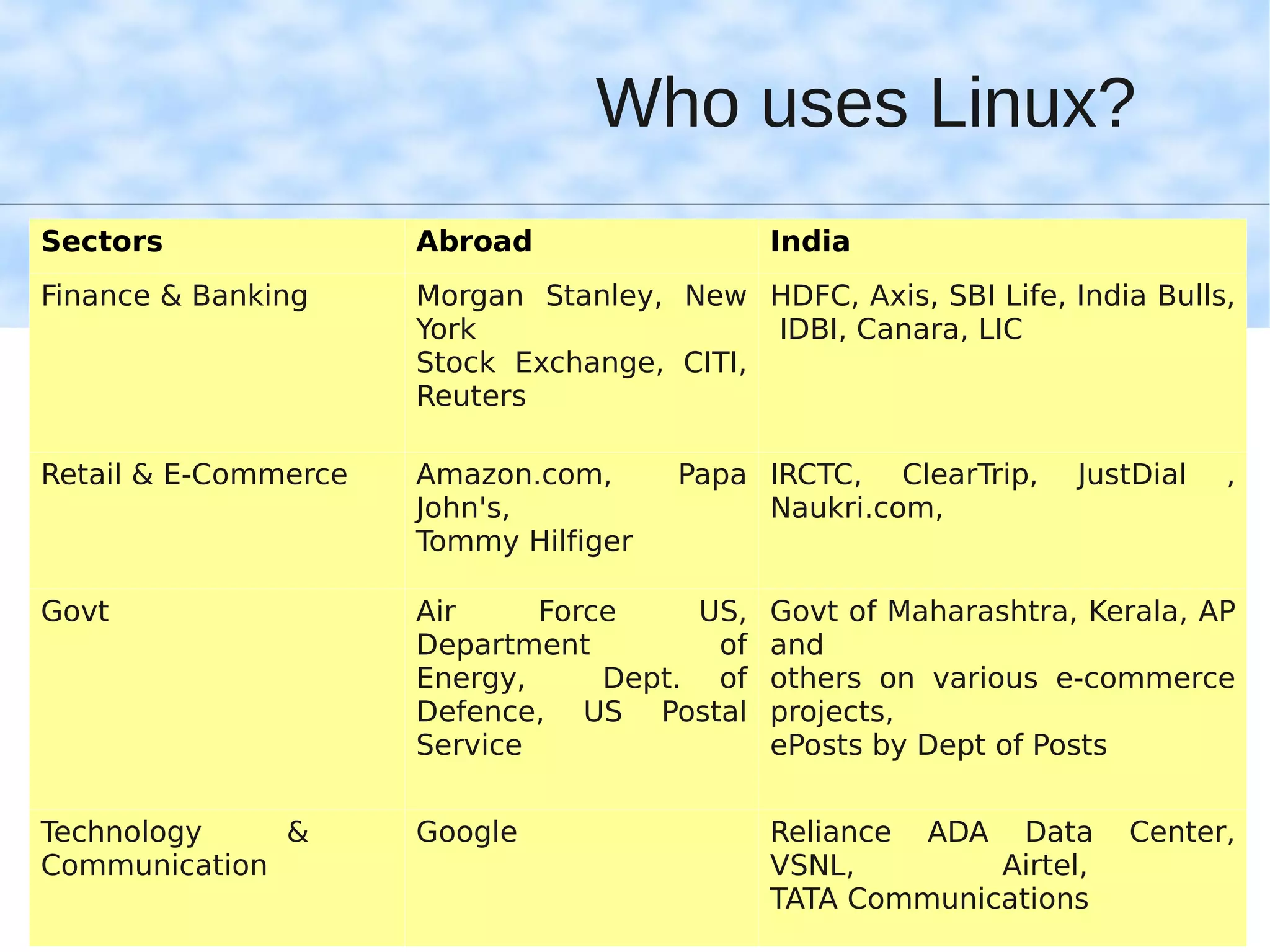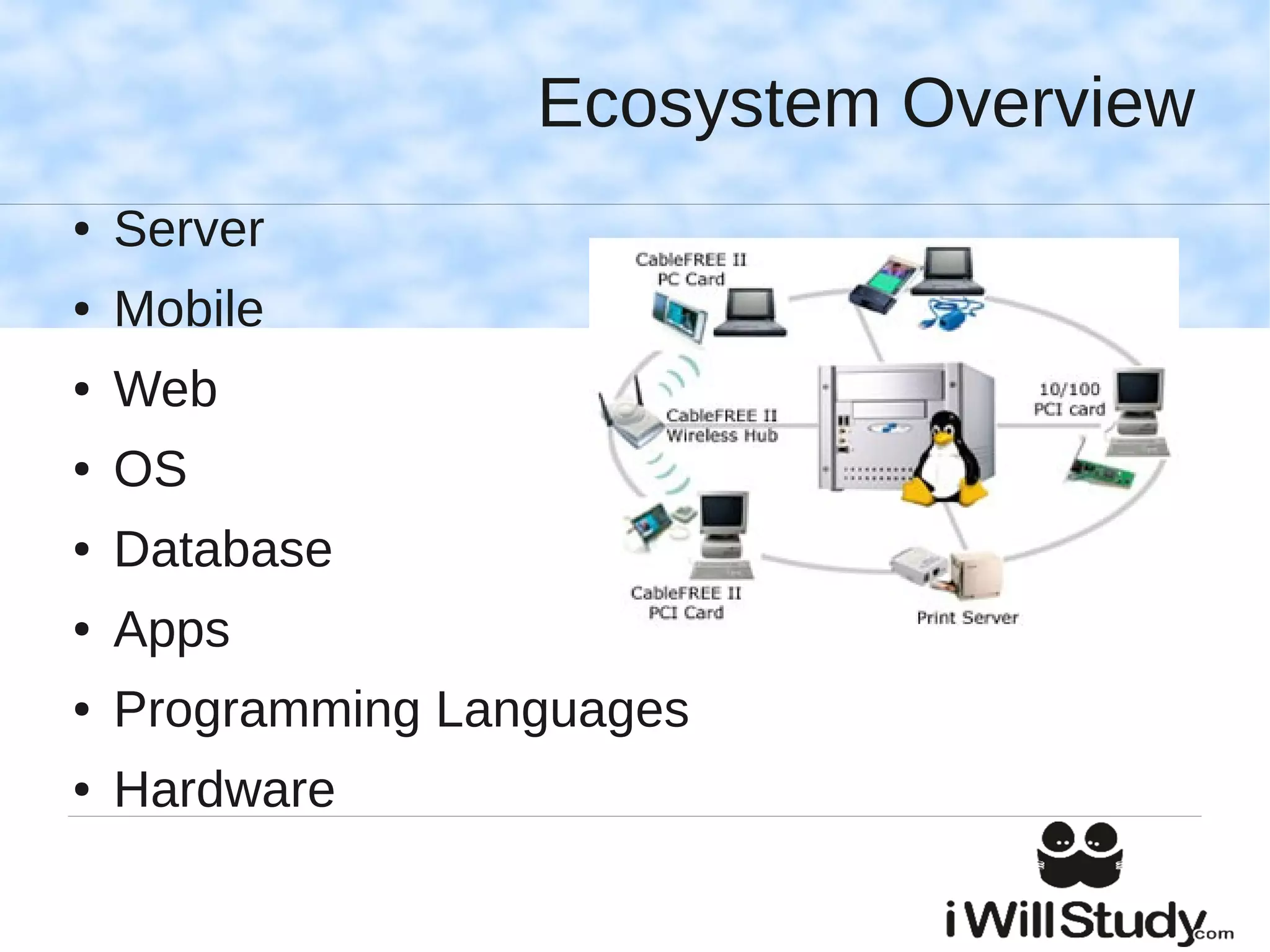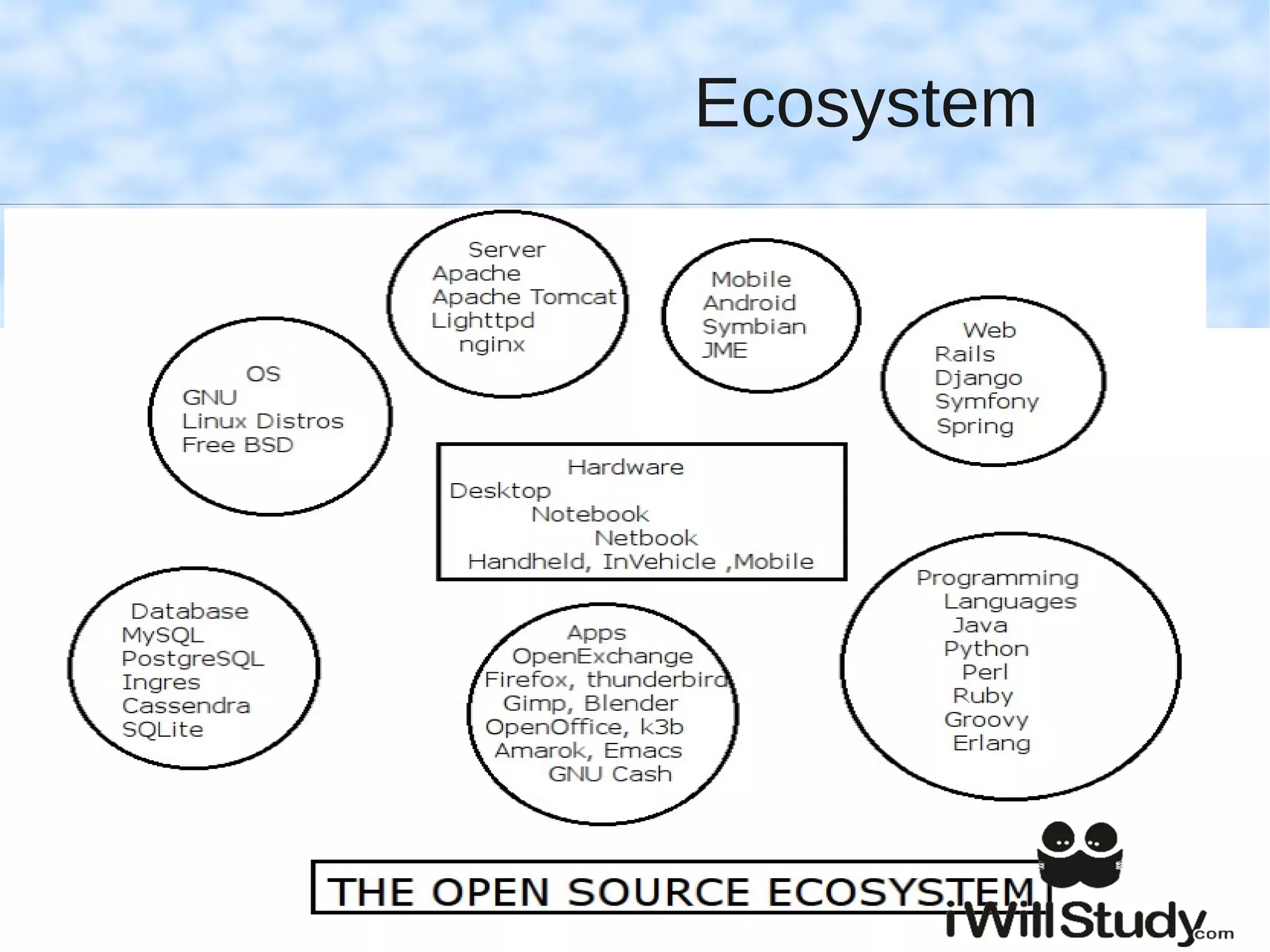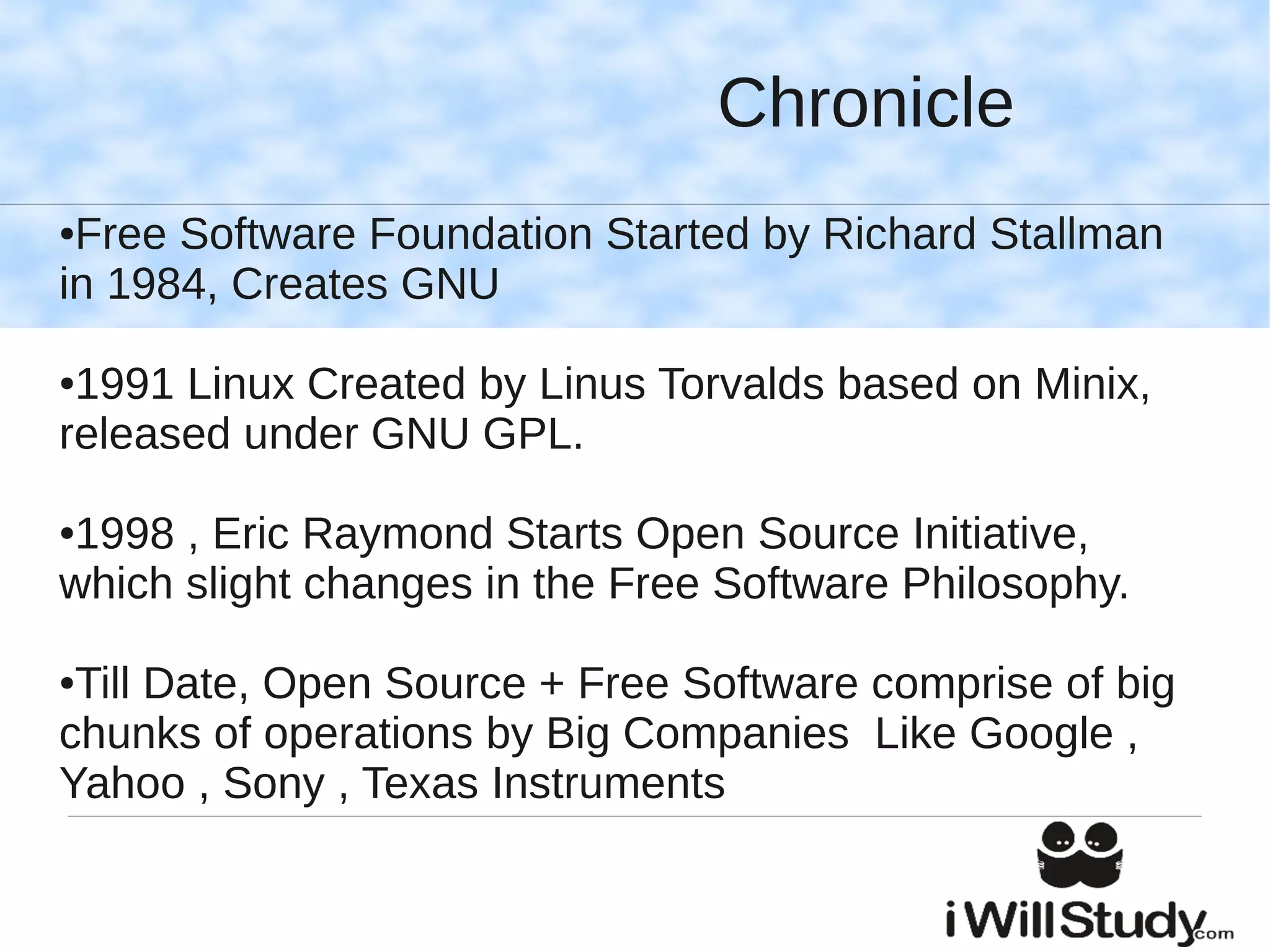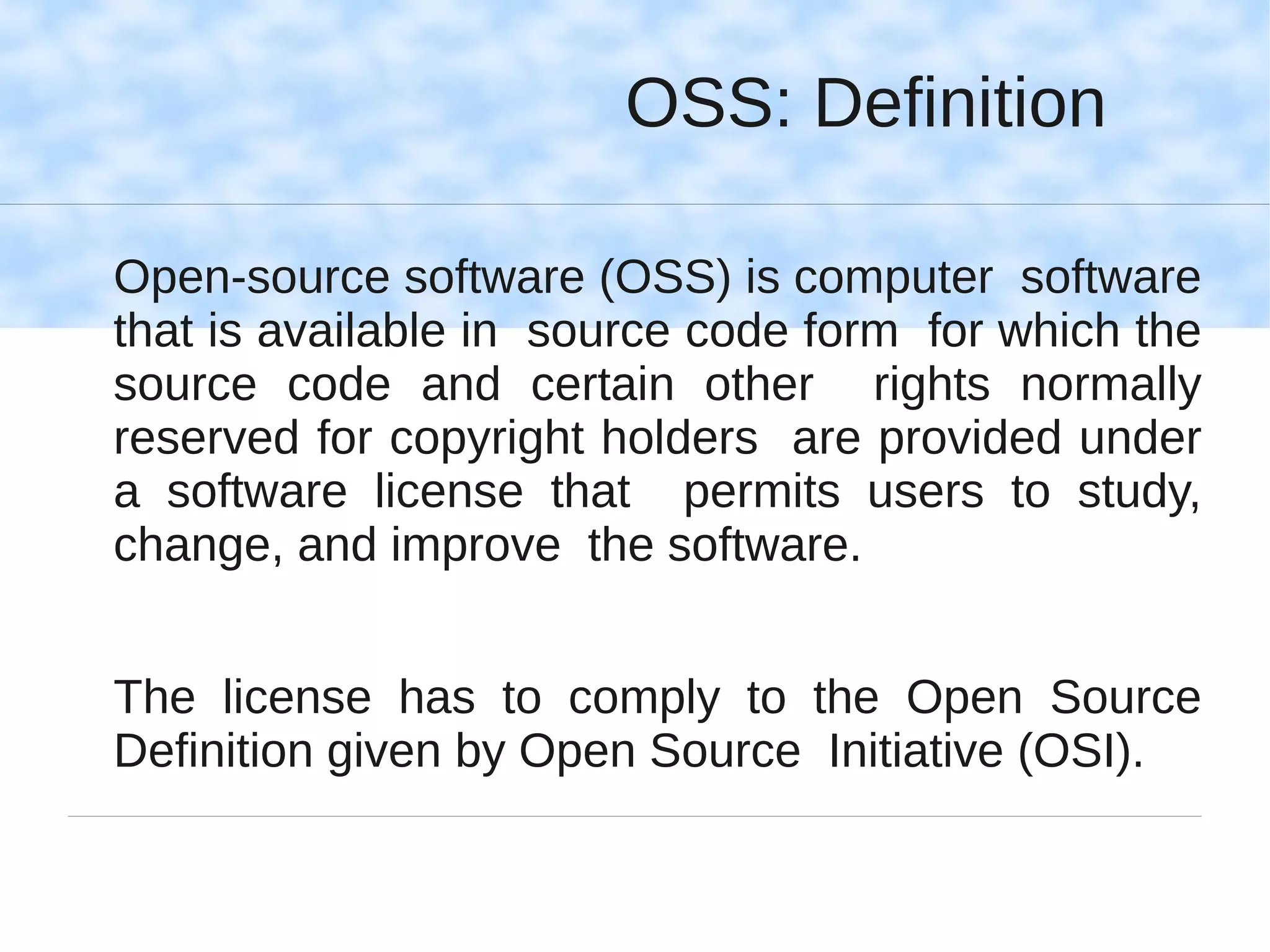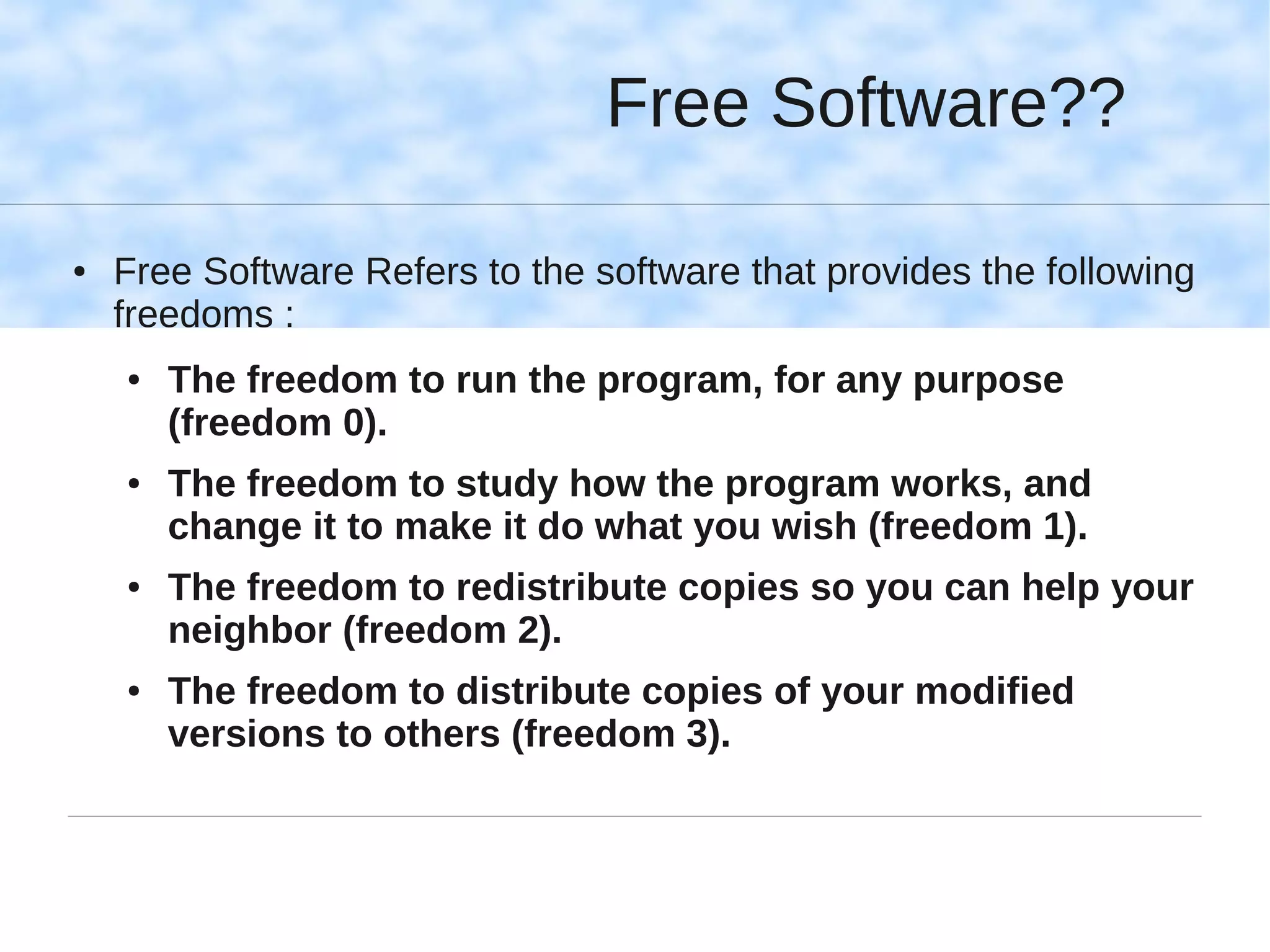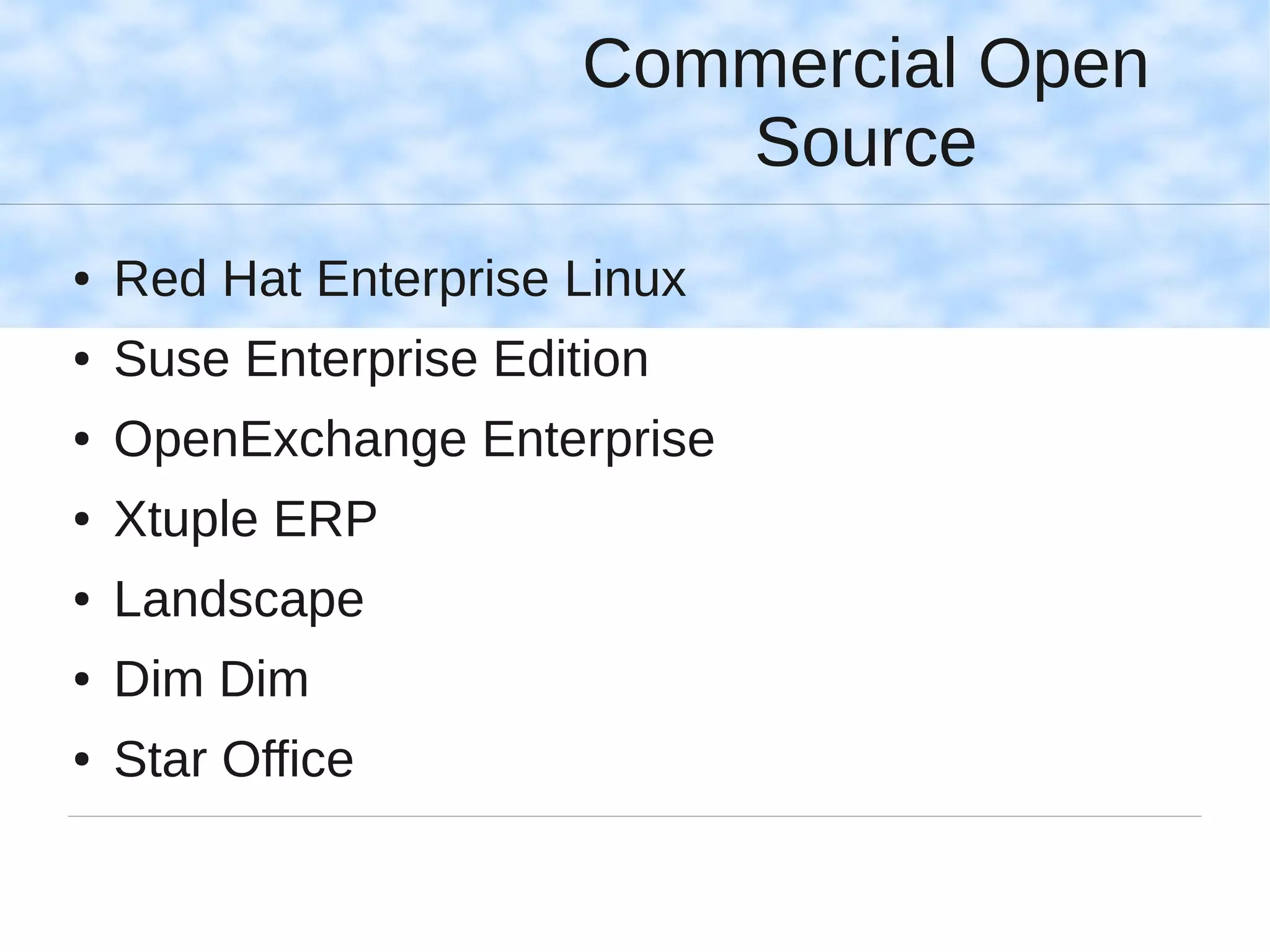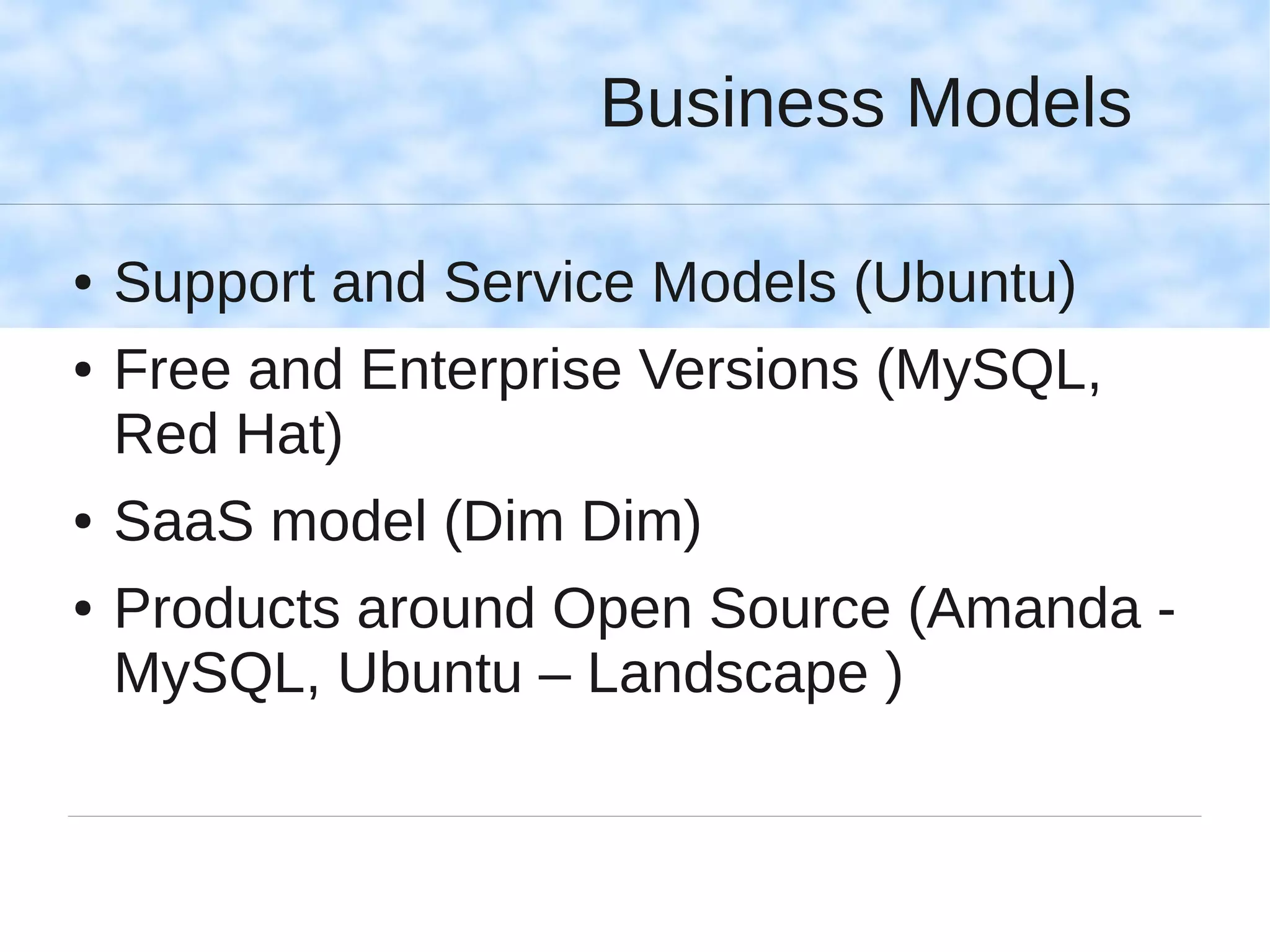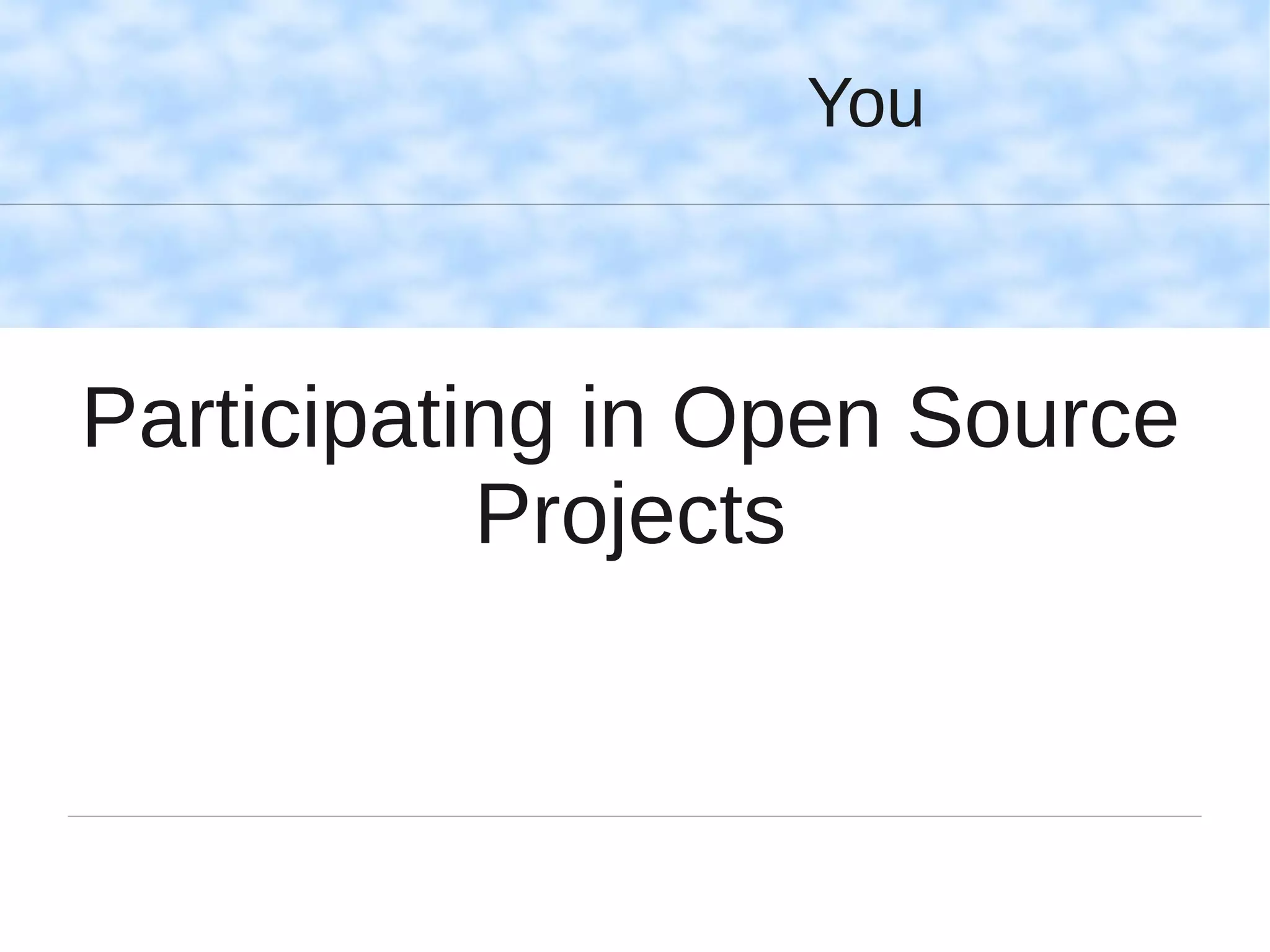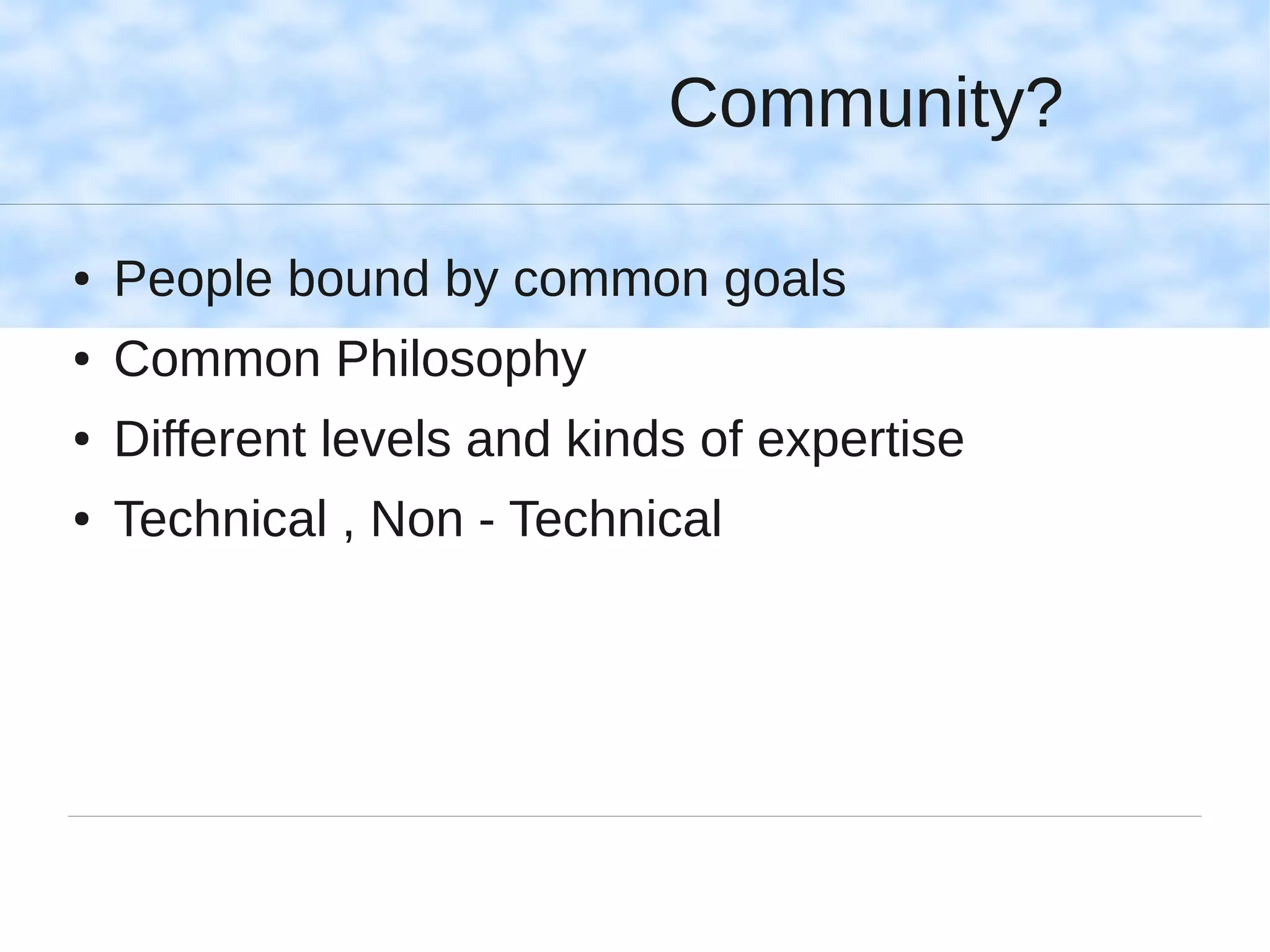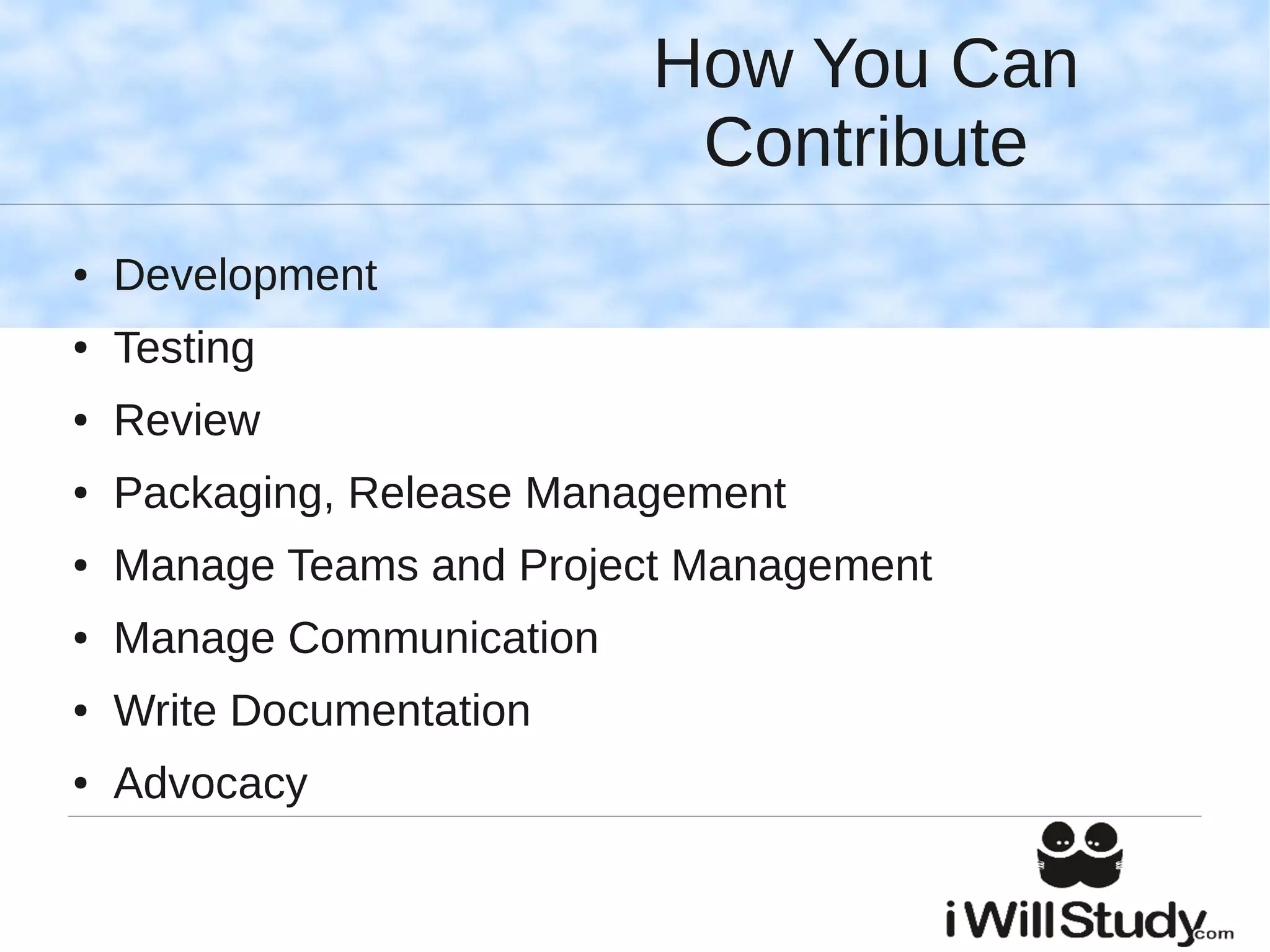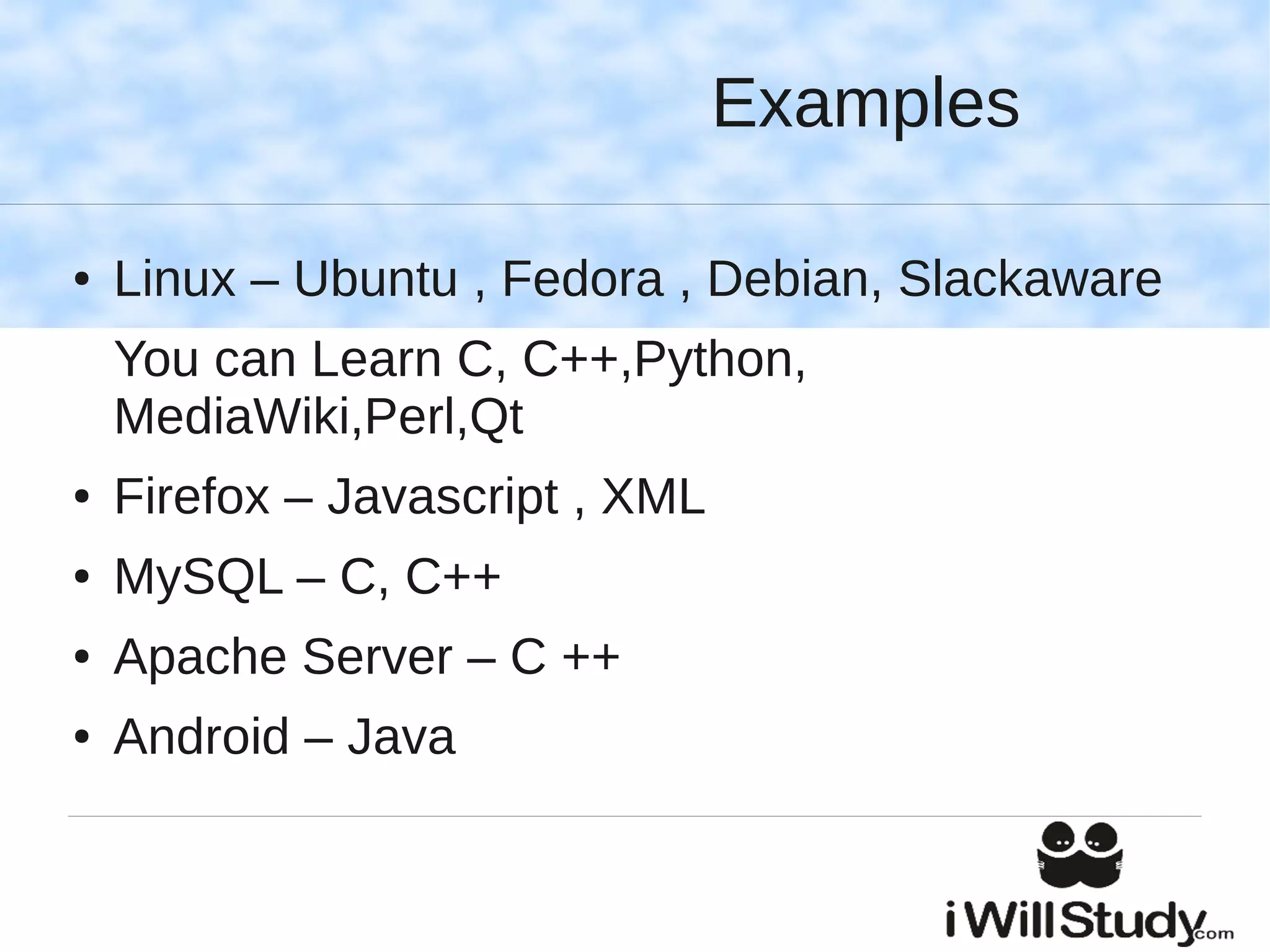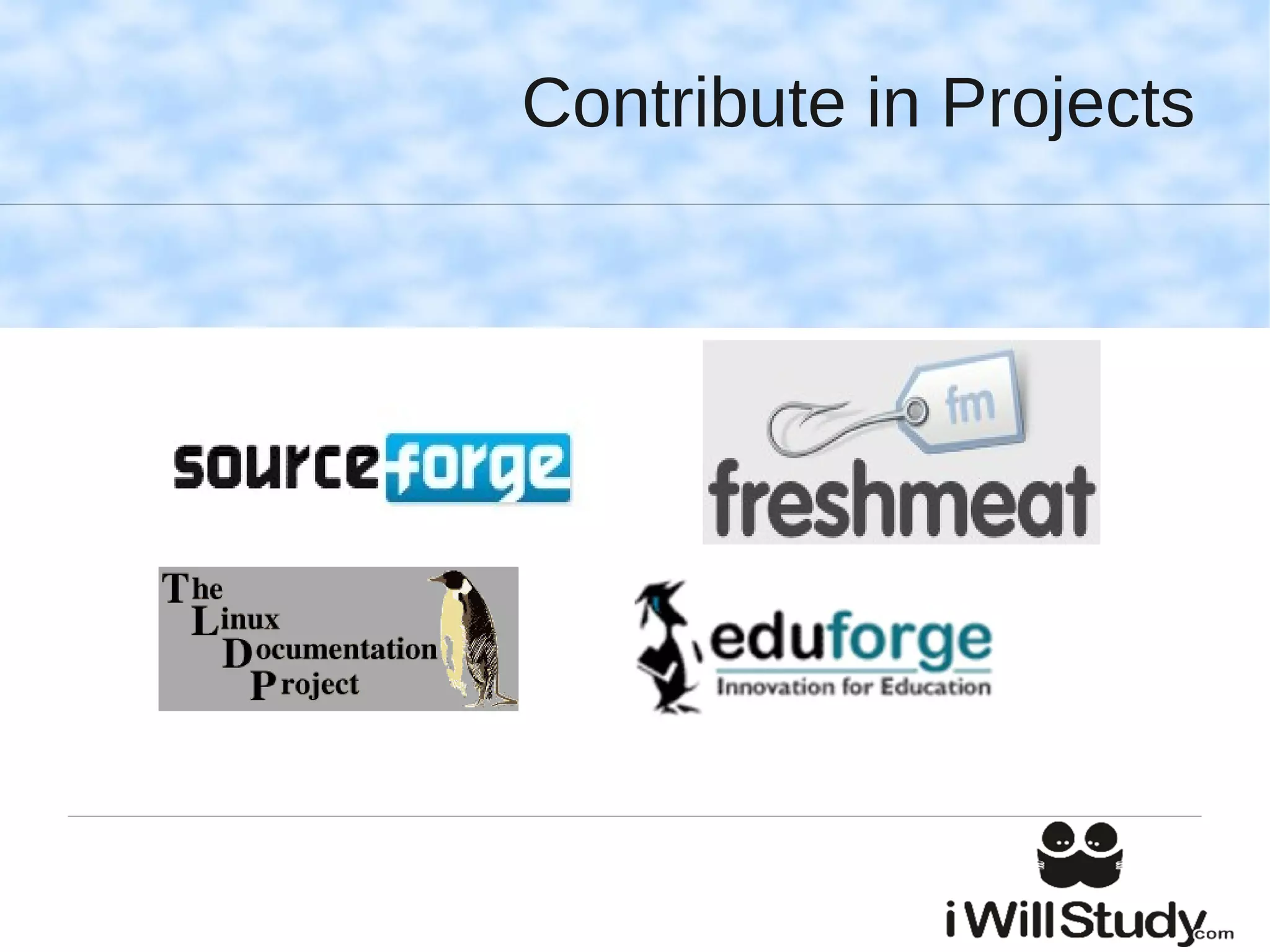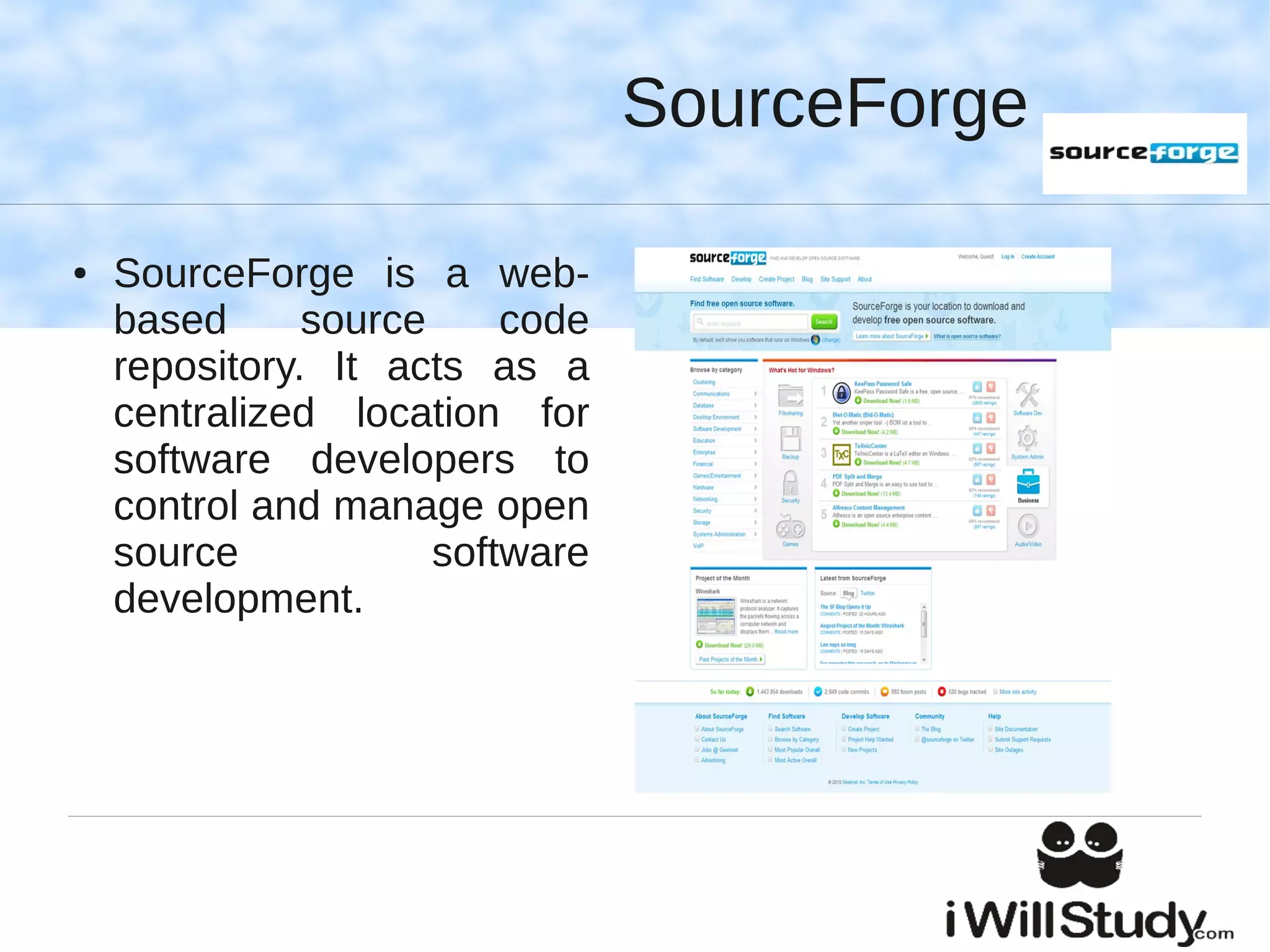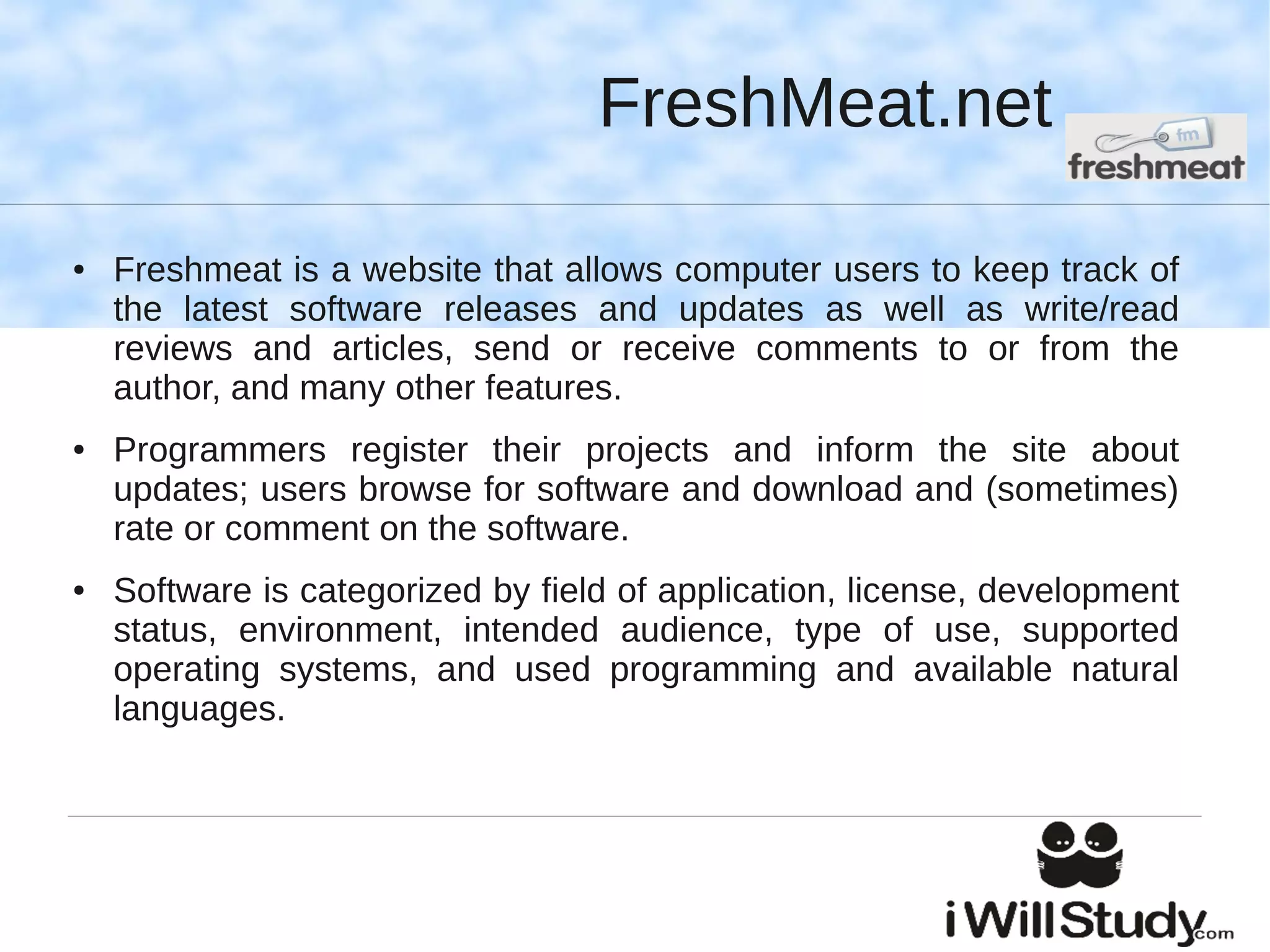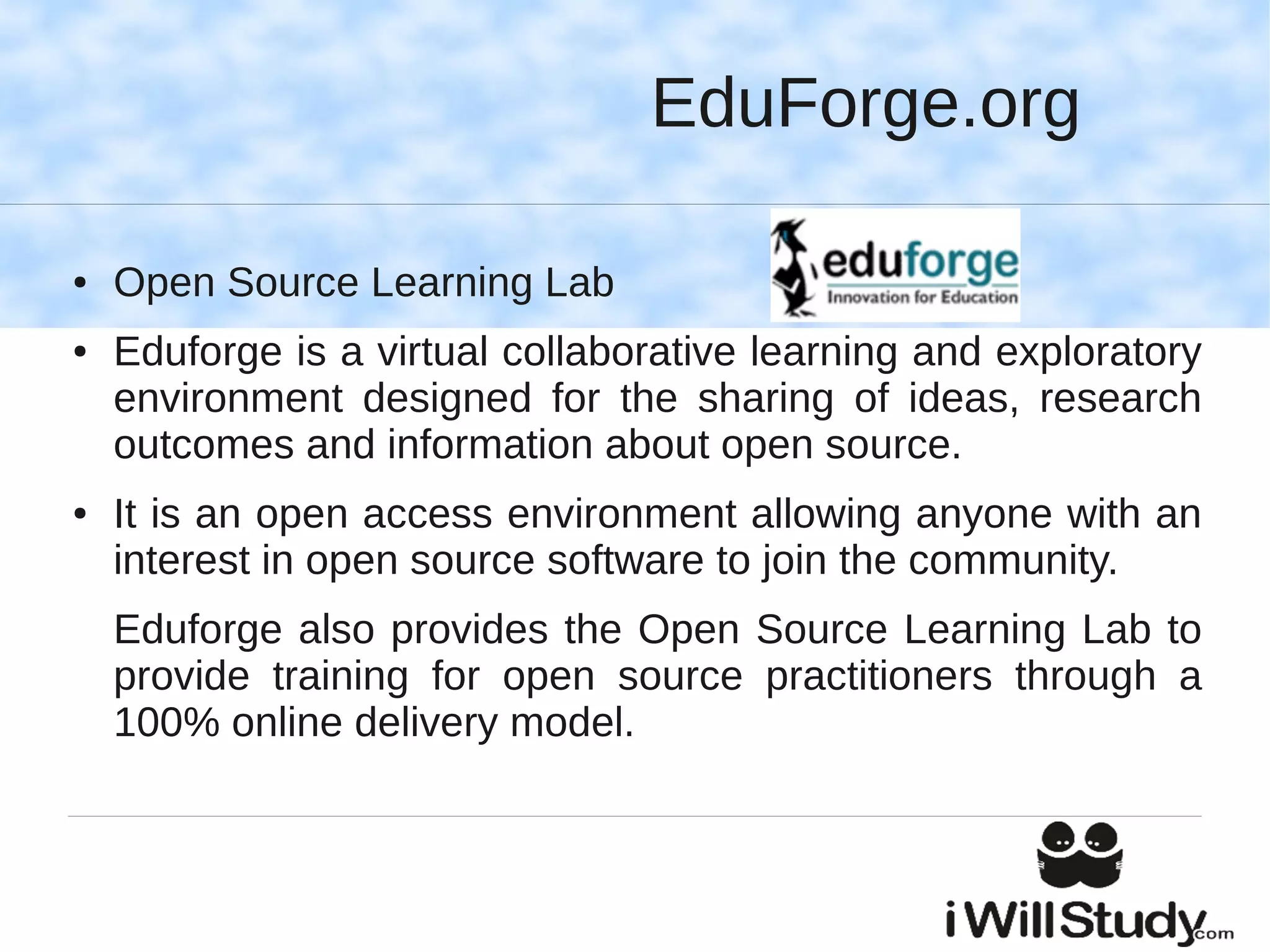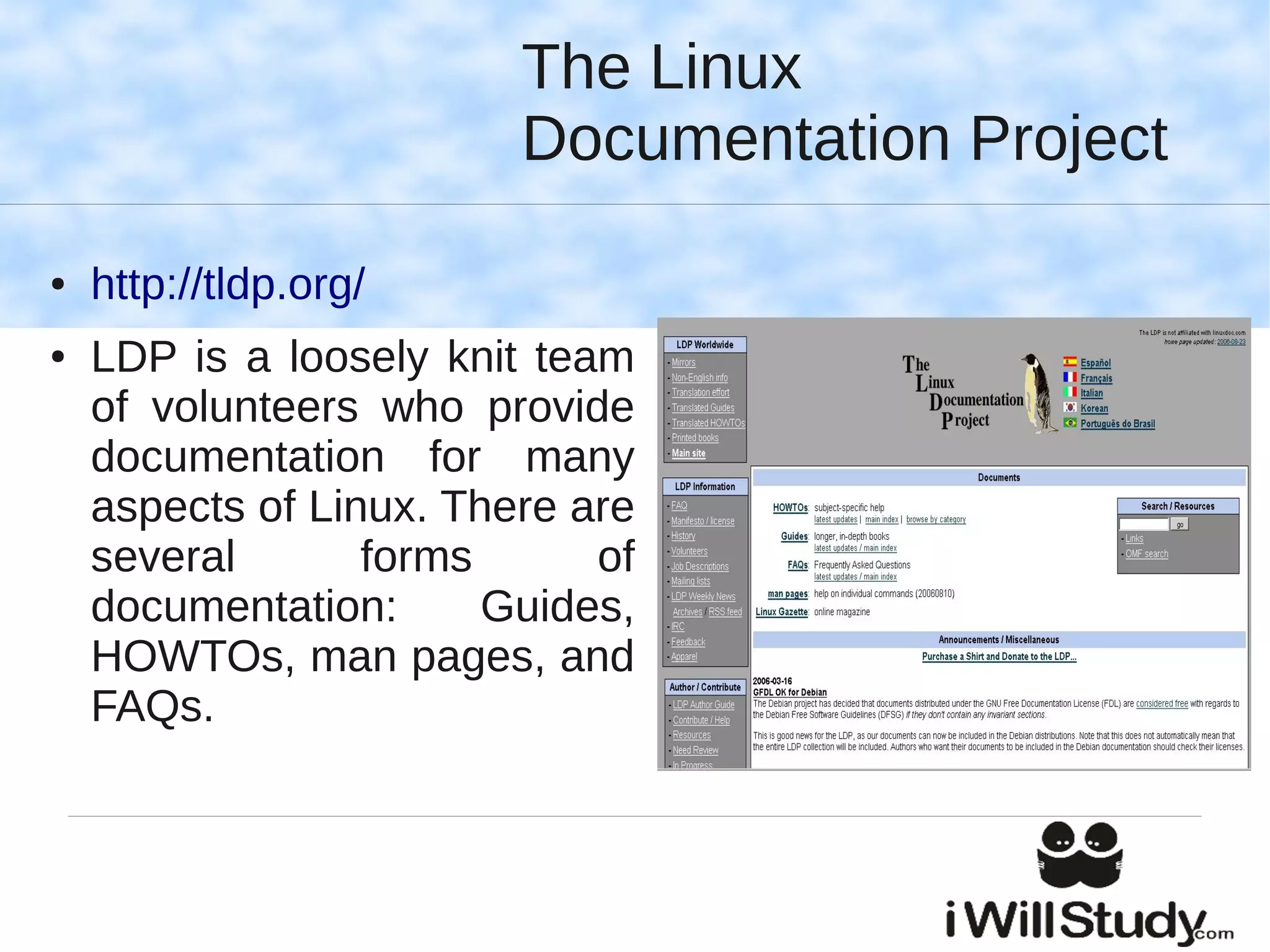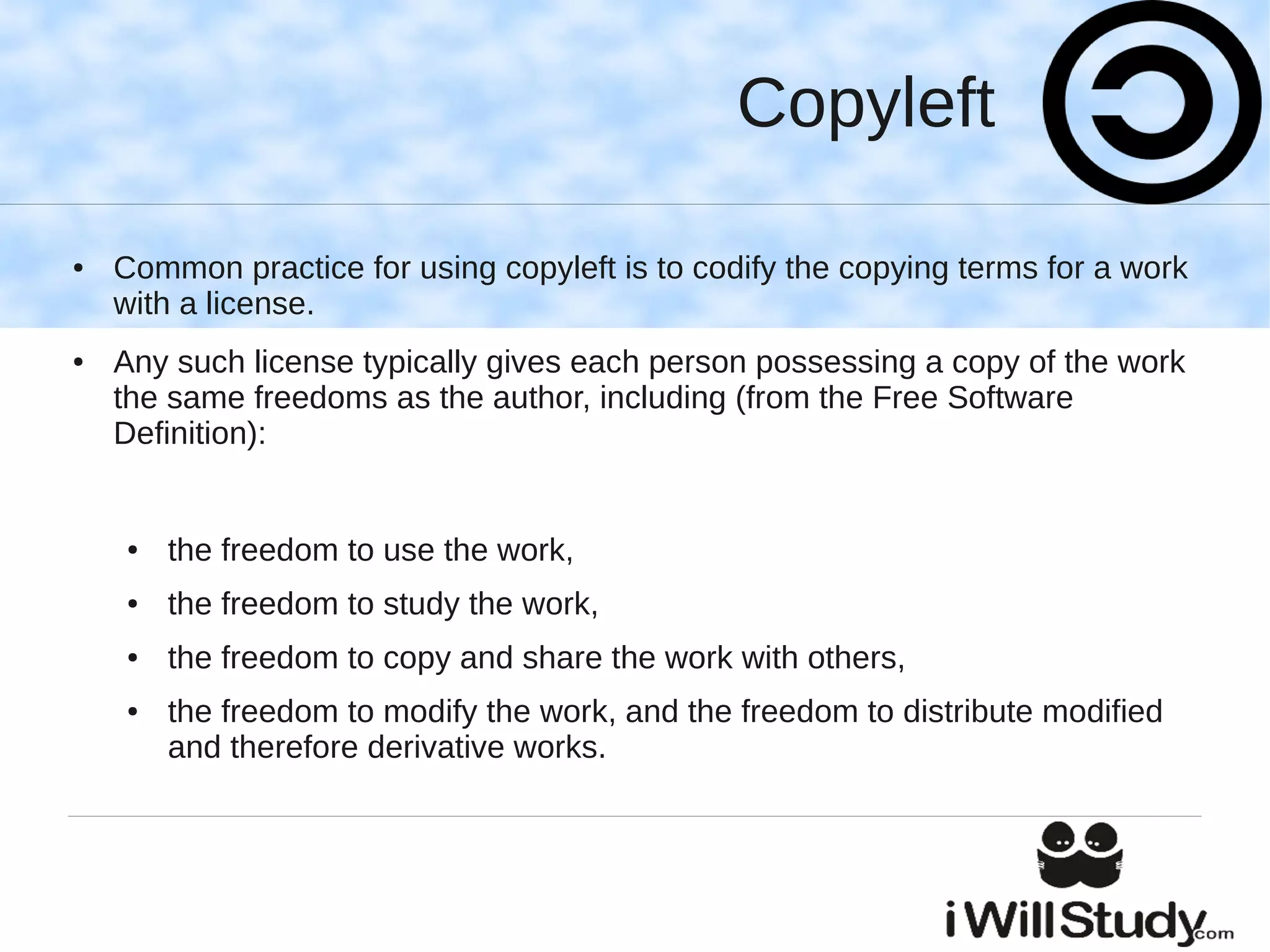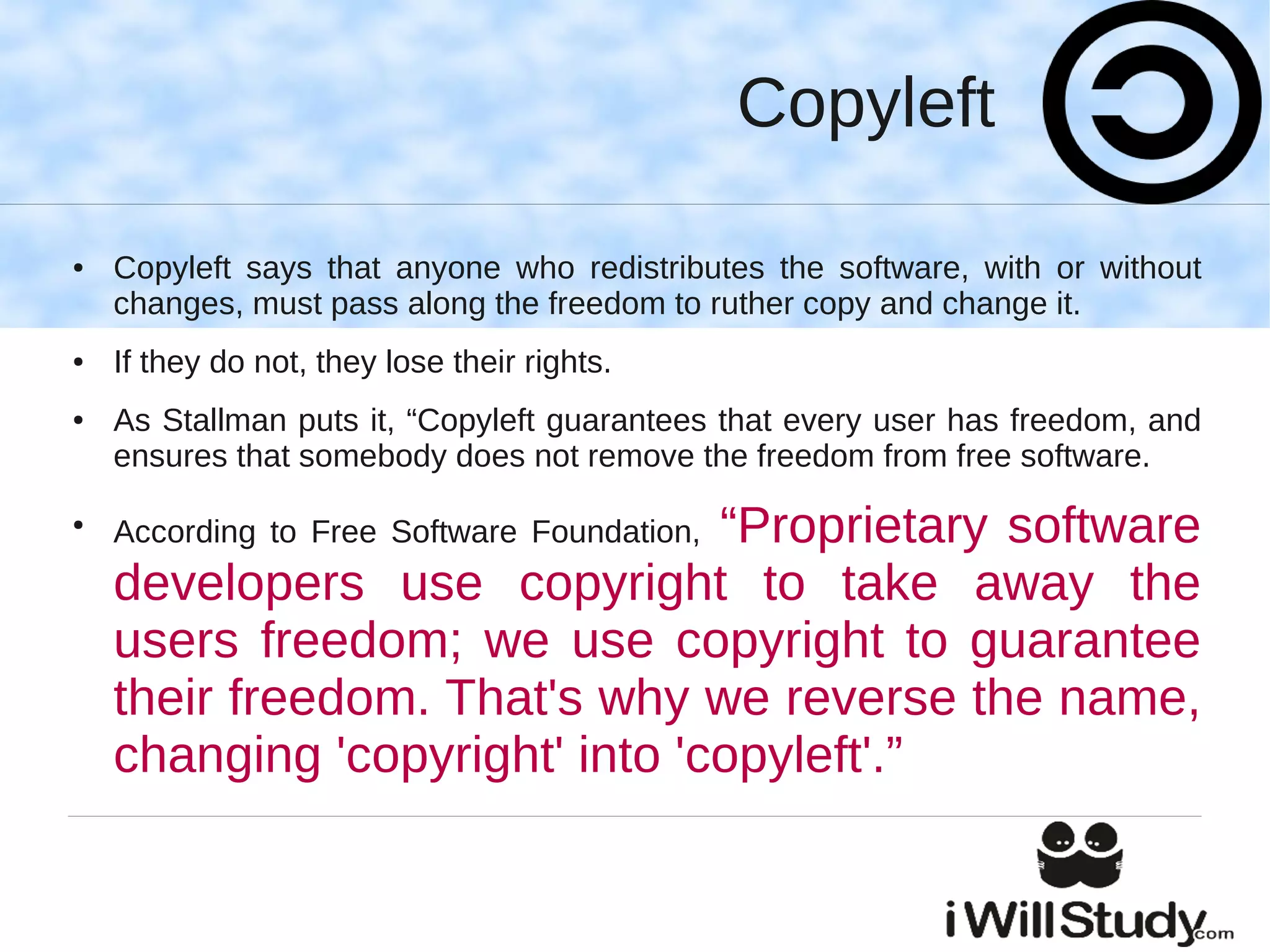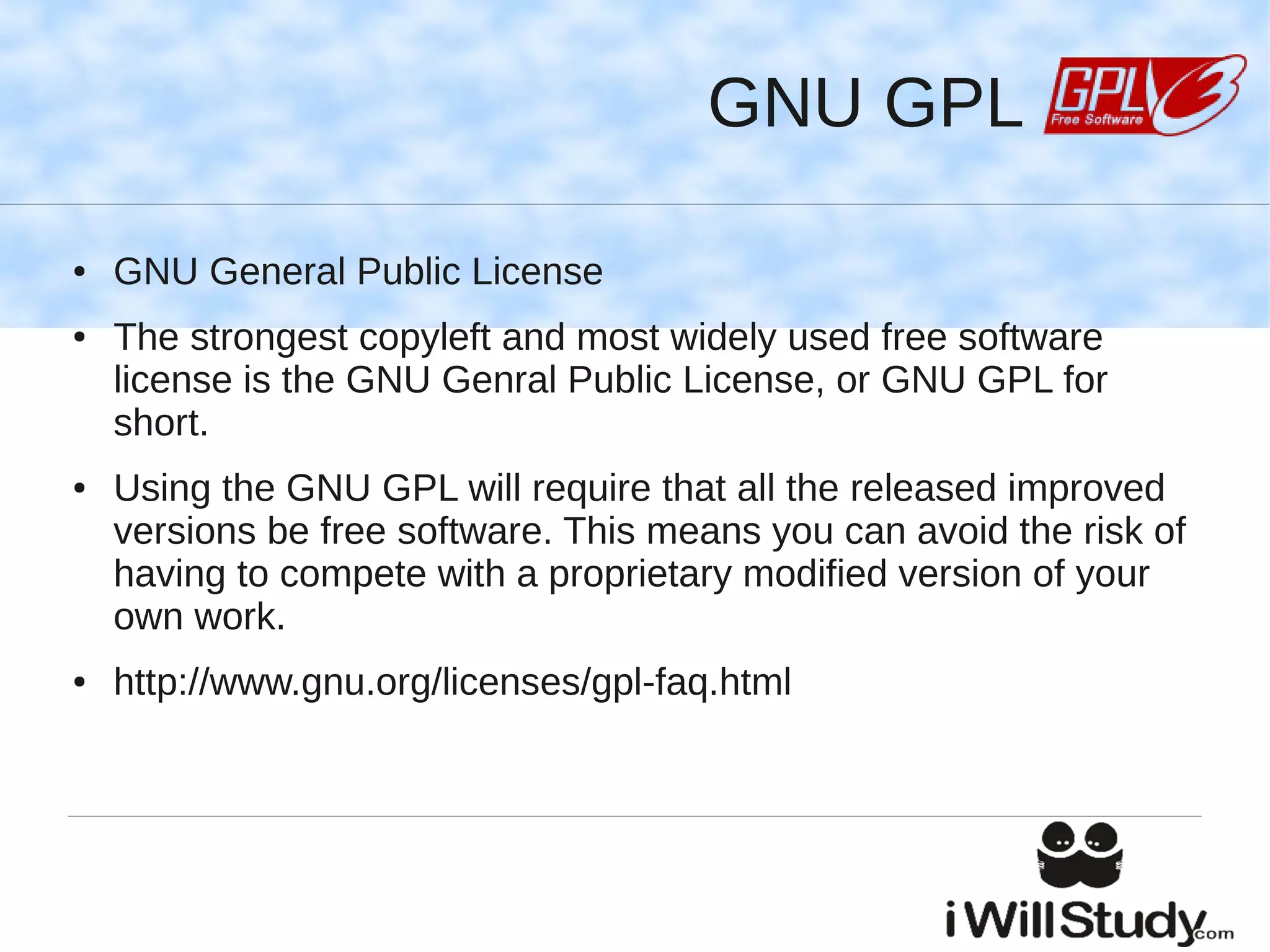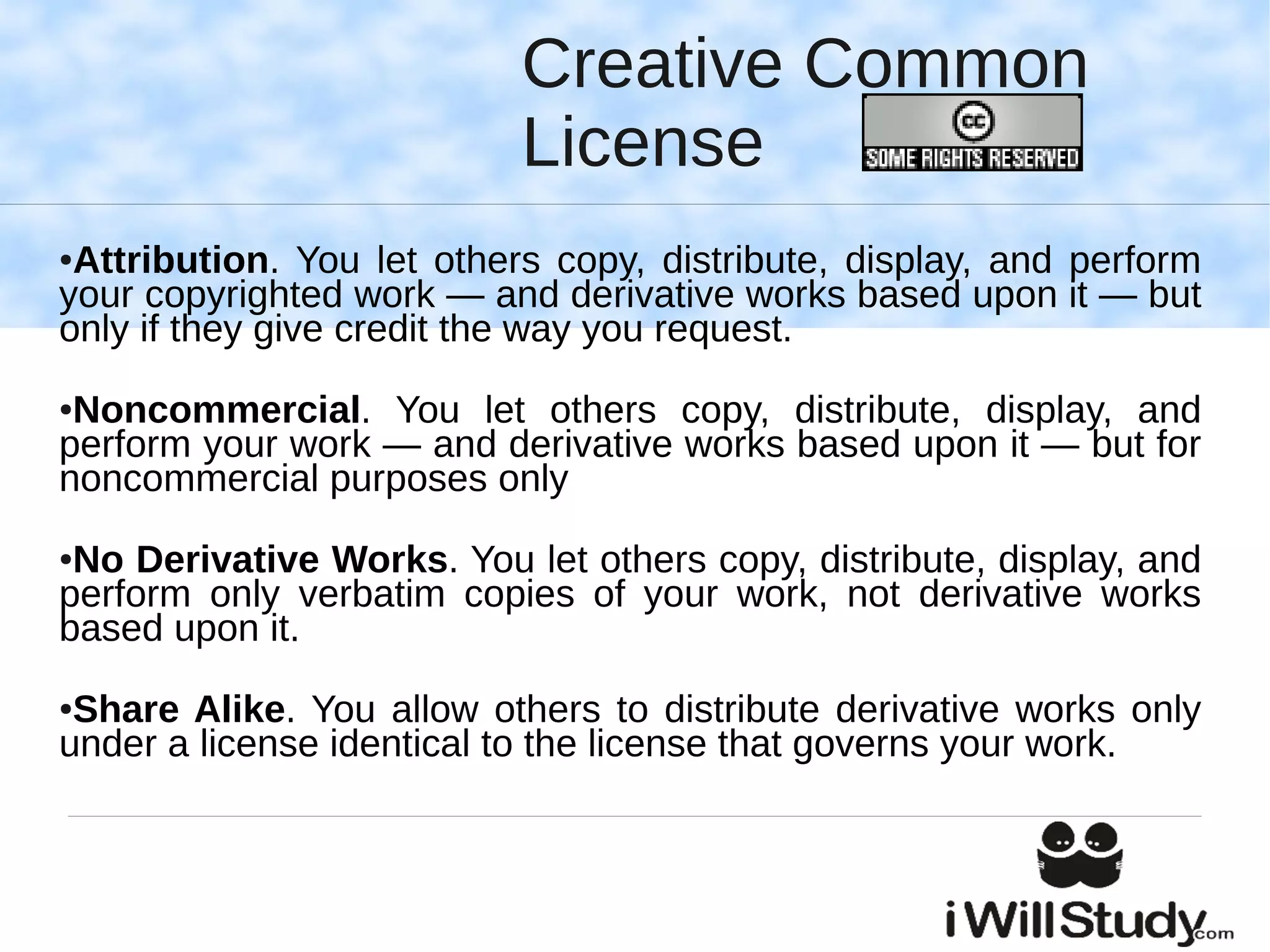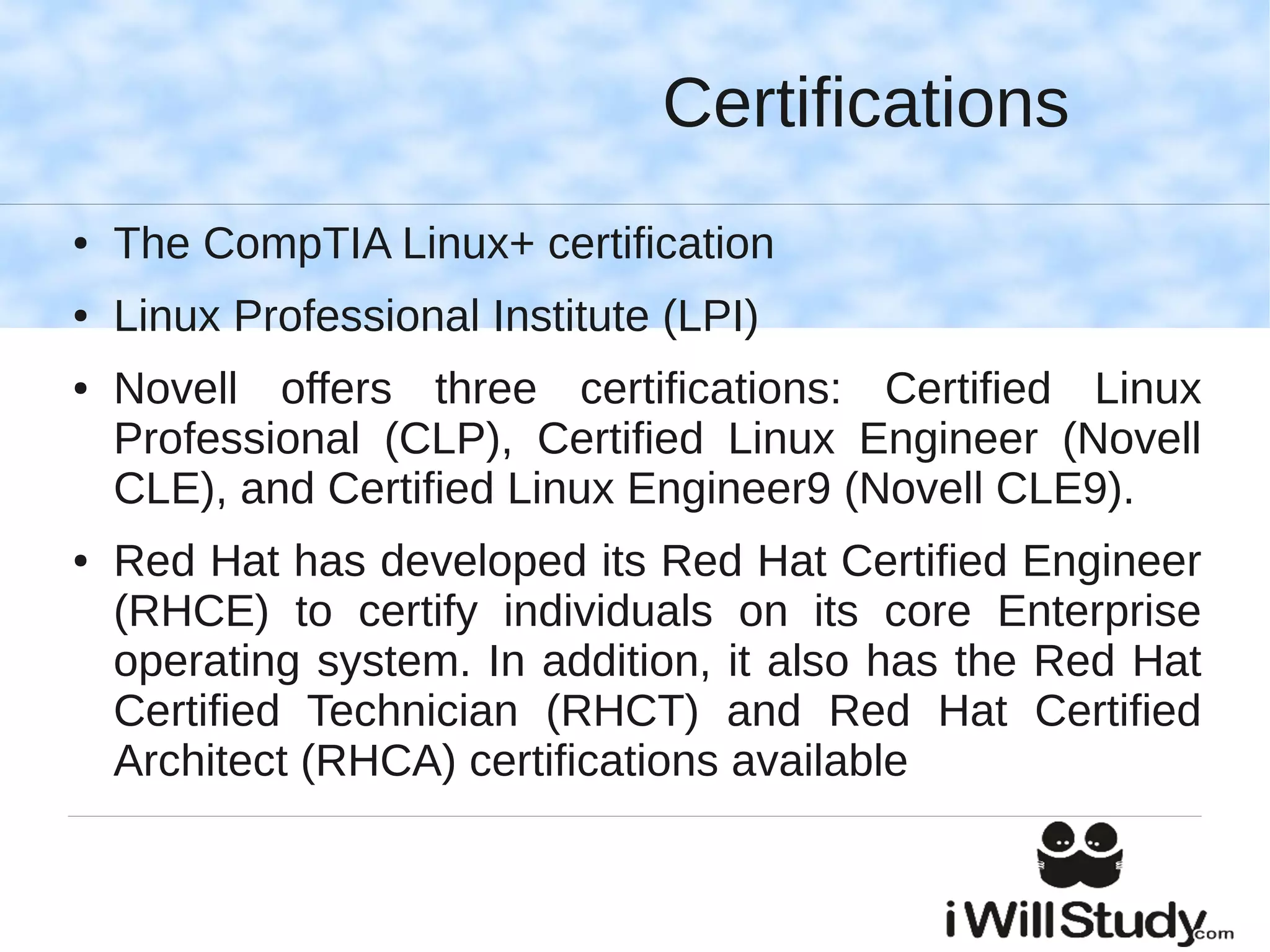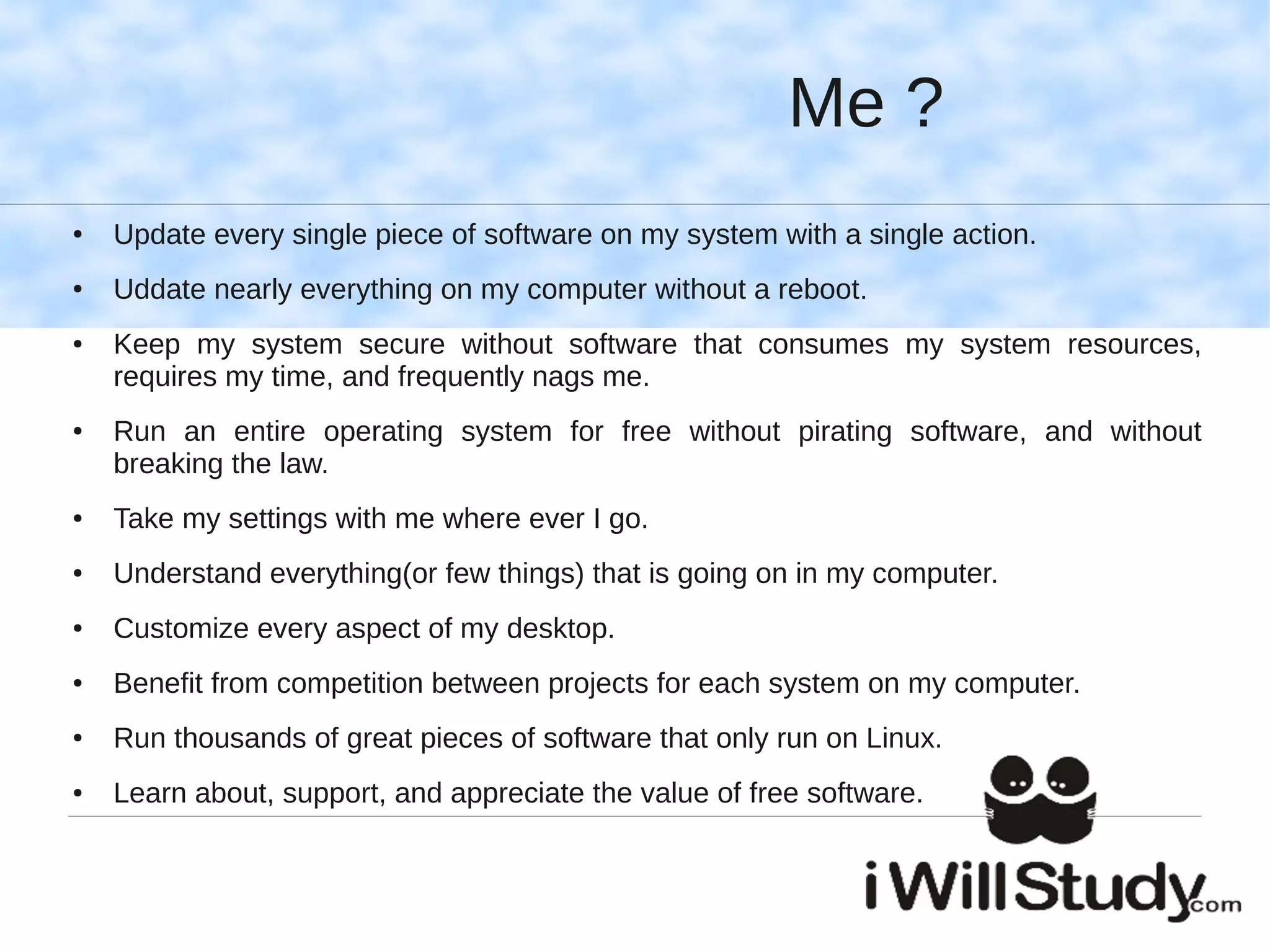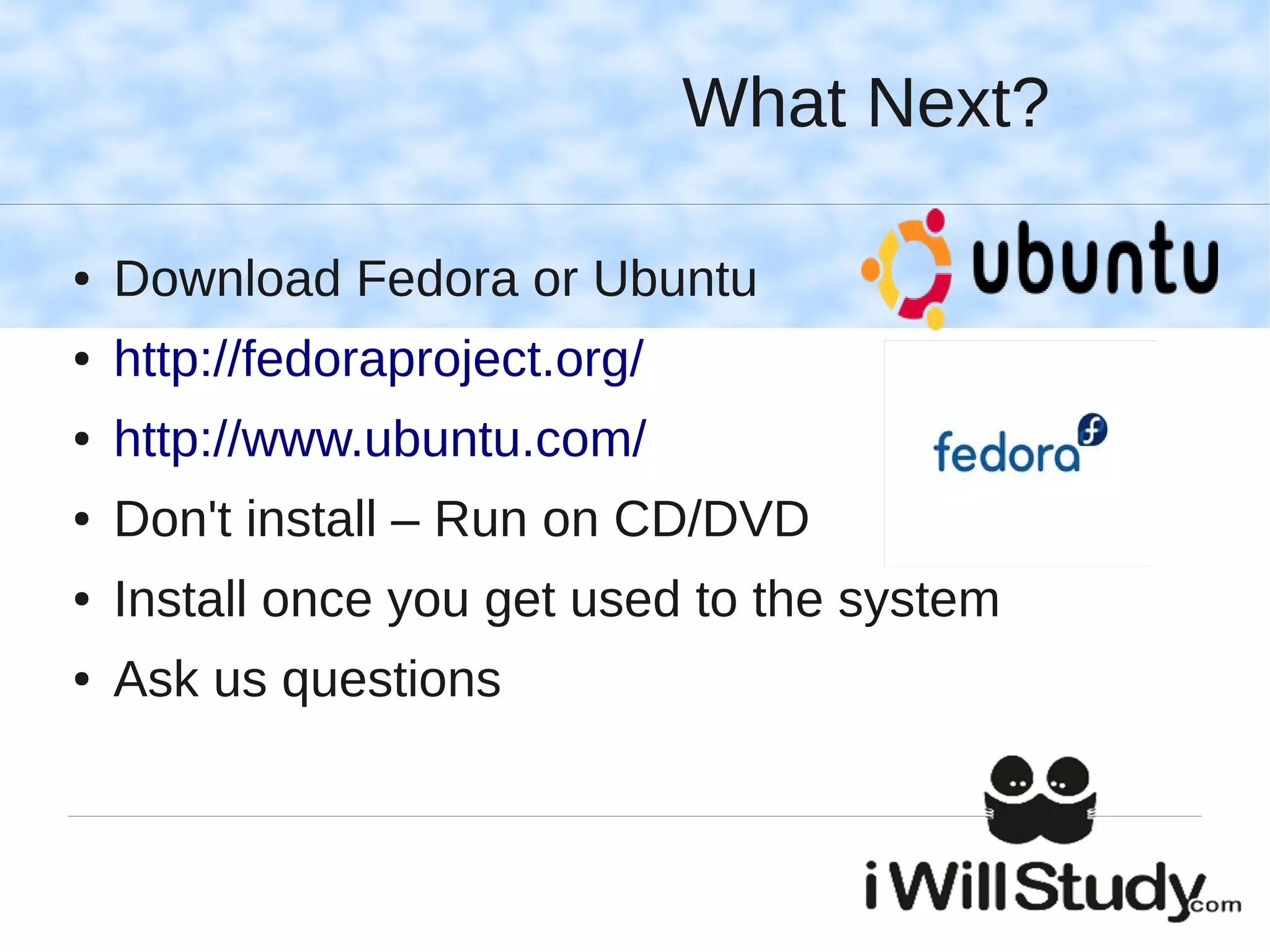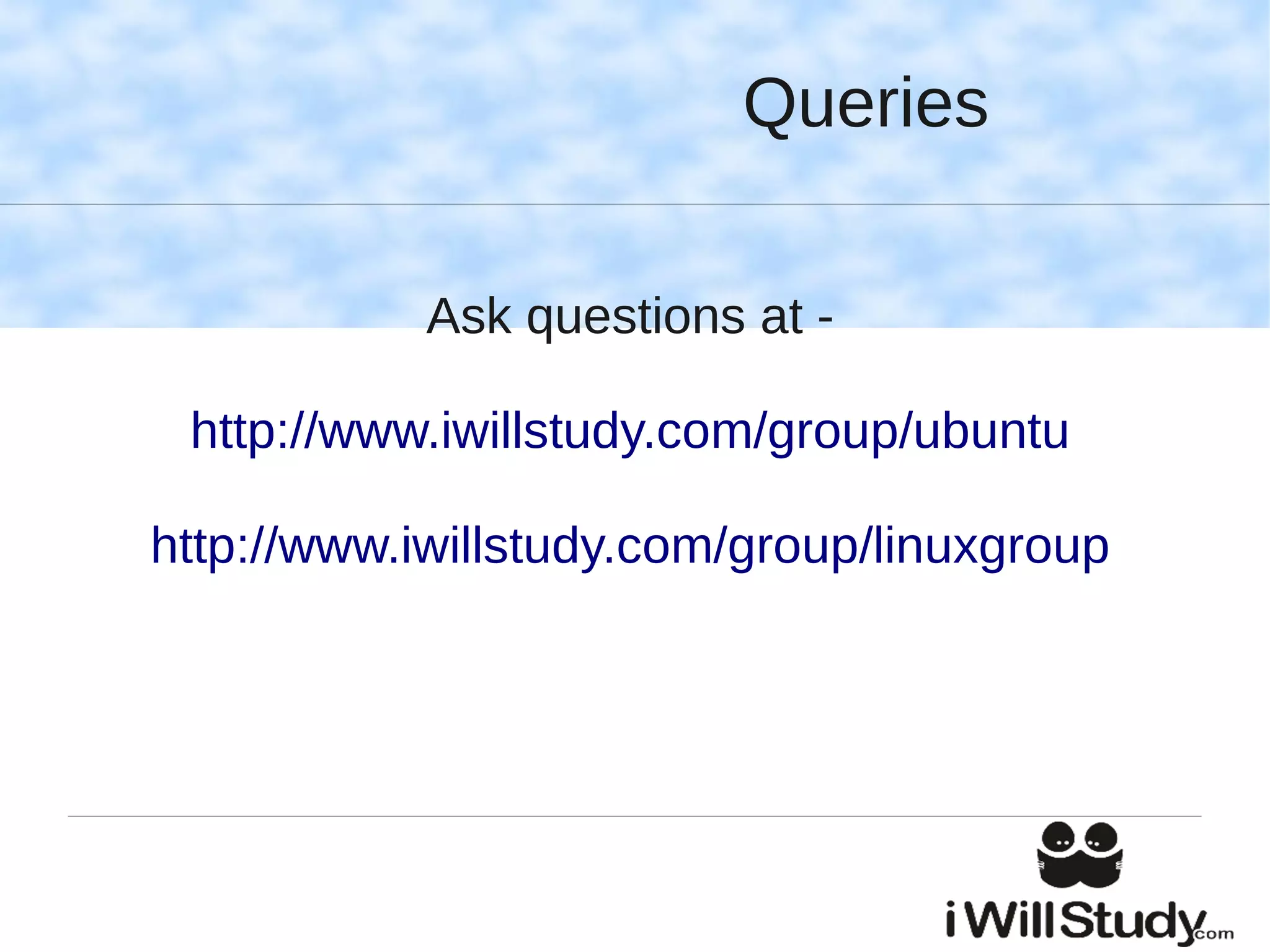The document provides an overview of Linux usage statistics and the Linux ecosystem. It discusses major companies and sectors that use Linux, including Google, Amazon, financial institutions, and governments. It then summarizes the history of Linux and free/open source software movements. The rest of the document outlines the various components of the Linux ecosystem, common licenses and business models, and ways for individuals to get involved through contributing to projects or obtaining certifications.
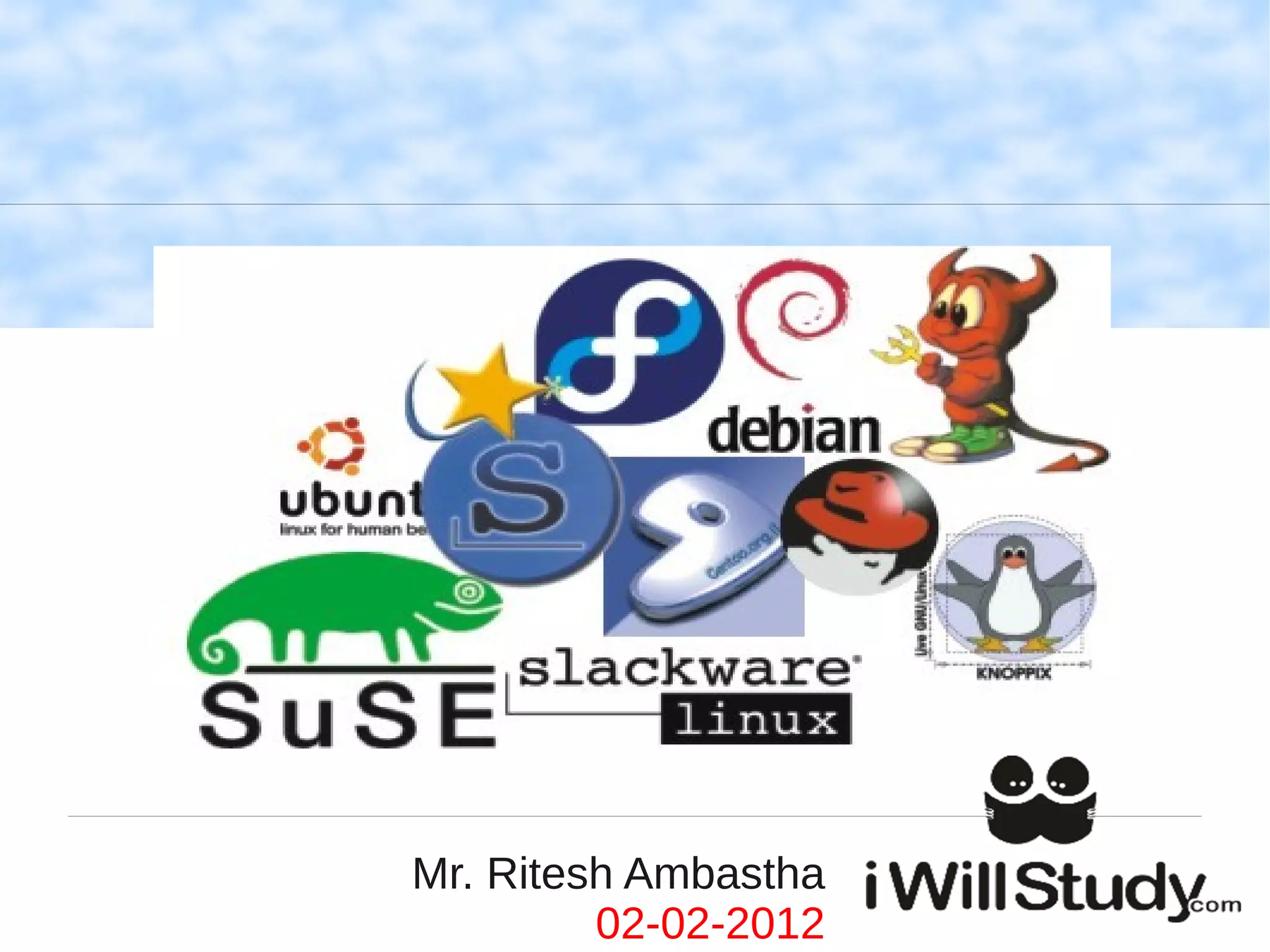
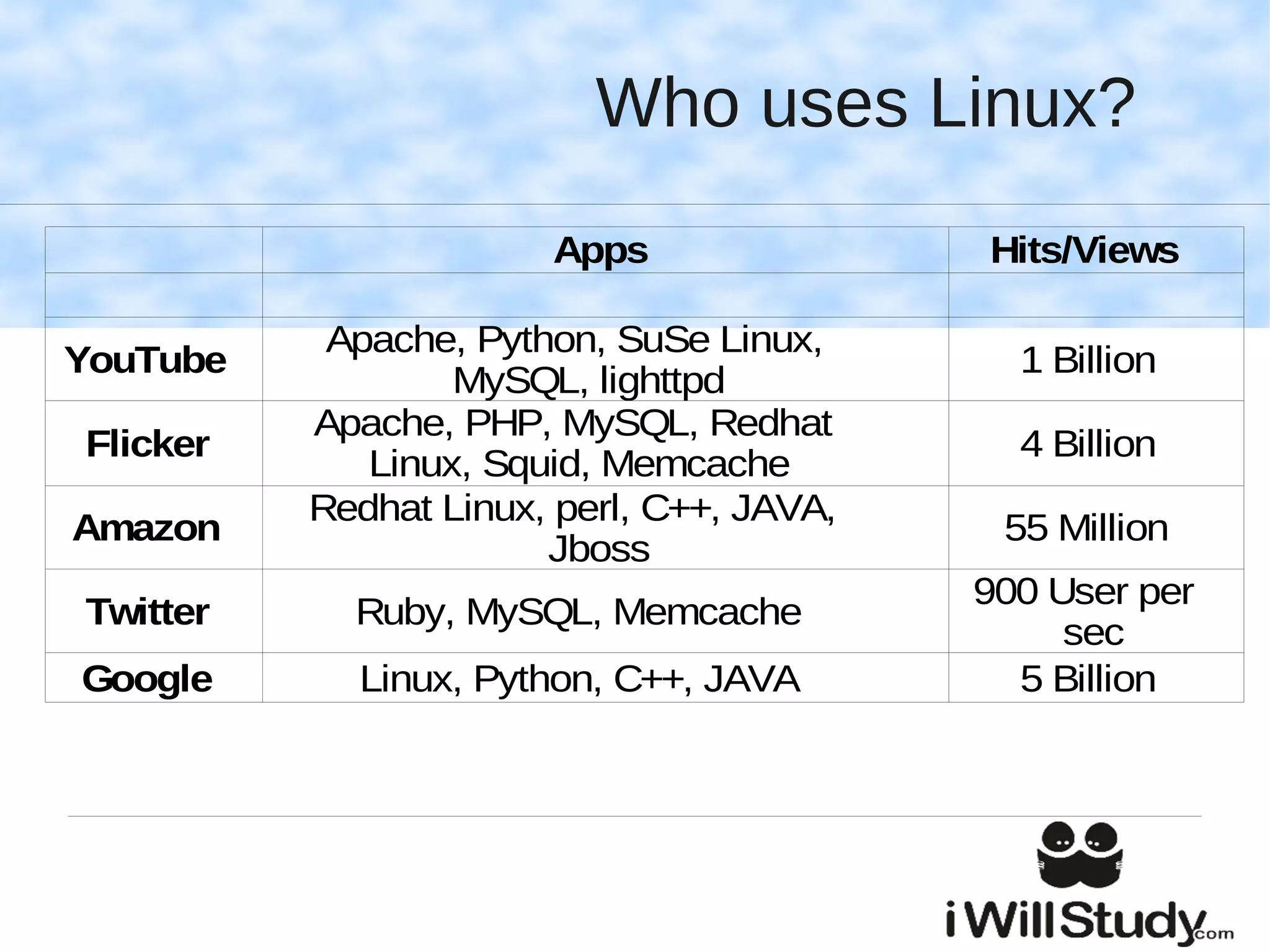
![Success Stories
● More than 98% of all Domain Name Servers, which identify the machine
on which a web page is situated, use free software called BIND.
● More than 80% of all web servers use free software, called Apache, to
serve their sites.
● More than 60% of all network servers run the Linux Kernel, another free
software.
● The TCP/IP implementation on most computers, (including those
running non-free operating systems) is free software.
● “Digital Domain used 105 DEC Alphas running RedHat [GNU/]Linux to
simulate and render water for James Cameron's Titanic. Other Movies:
Avatar – 2PB disk, 35000 Cores, 4000 Blades – Ubuntu, kungfu panda,
Lords of the ring, Harry porter ........](https://image.slidesharecdn.com/fossforstudents-120202005835-phpapp01/75/Linux-Seminar-for-Beginners-3-2048.jpg)
